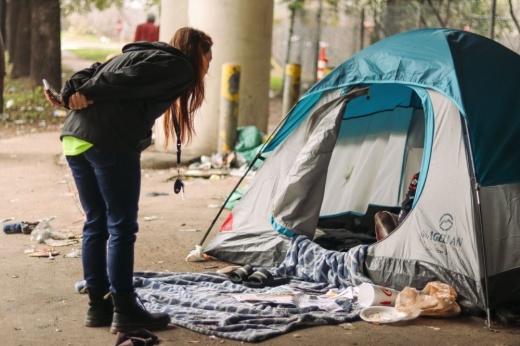Michael Nichols, director of the Houston Housing and Community Development Department provided an update Feb. 3 during a Quality of Life Committee meeting on the program, including new funding sources.
The breakdown
As of Feb. 3, Nichols said the program has secured $21.8 million—with $14 million gained from the city’s federal funds, $3.5 million from the city’s general fund, $2.6 million from Houston First, $1 million from the Downtown Management District and $700,000 repurposed from the state’s Homeless Housing and Services Program.
Nichols said discussion is currently ongoing with different entities, including Harris County, Houston’s different Tax Increment Reinvestment Zones, the Metropolitan Transit Authority of Harris County and other corporations, to receive the remainder of the nearly $70 million funding goal.
Nichols said once the entire funding is secured, the money is expected to be allocated in the following ways:
- Outreach: $3.3 million
- Rapid rehousing: $45 million
- Permanent supportive housing: $11 million
- Diversion: $2.6 million
- Navigation Center: $3.6 million
- HUB + Shelter: $3.8 million
The context
According to a presentation by Nichols, 3,280 individuals face nightly homelessness in Houston, with 1,100 being unsheltered.
Whitmire’s homelessness program, which was first announced back in November, hopes to move around 1,000 individuals from encampments into housing and support services, as well as establish hubs across the city to offer immediate support and reclaim public spaces for community enjoyment, according to the presentation.
What else?
Kelly Young, the president and CEO for the Coalition for the Homeless of Houston/Harris County, also presented at the meeting the findings of a recent homeless relocation study that was done in Downtown Houston called The Allen’s Landing Initiative.
The initiative was a collaboration between city officials, law enforcement, local businesses and the Coalition.
Young said the process included the coalition going to Allen’s Landing, where 36 people built encampments at, and collecting data on all the individuals camping at the park to better understand their situation and what services they needed.
After collecting data, the Houston Police Department performed outreach that warned those camping at Allen’s Landing that the space would be closed and redirected them to different services.
Through this initiative, 19 individuals were connected to supportive housing and the space has been returned for the public to enjoy, Young said.
“[Allen’s Landing] has become a place where people do not feel like they could go and build up an encampment anymore,” she said. “From the coalition standpoint, I want to house everybody, so that doesn’t feel like the biggest win. But from a community standpoint, it is. When the community feels safe and comfortable, then they stop targeting the most vulnerable and the most without resources as the problem.”





